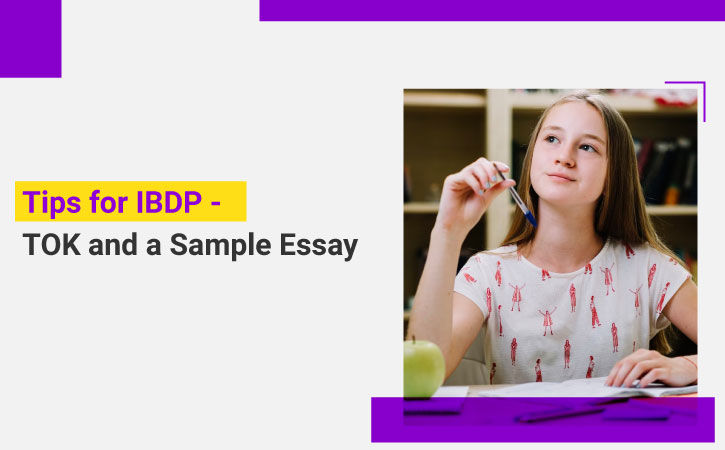

IB (International Baccalaureate), initially known as International Baccalaureate Organization is a non-profit foundation founded in 1968 and headquartered in Geneva, offers a continuum of international education through four challenging high-quality international education programs in more than 160 countries and catering to 1.95 million students aged 3 to 19 years across the globe.
This board does not have any formal examinations. Certificates are issued to students who fulfill their standards at different levels. Also, there are no prescribed textbooks nor there is a curriculum. Hence present is the flexibility for the teachers to personalize it and make the teachings for each concept as per the requirements of the students. The advantage lies in increasing creativity and imaginative skills to maximize the learning outcomes. After completing the diploma programs, the students can look forward to getting admission to universities and completing their graduation.
The IB Mission statement is “to develop inquiring, knowledgeable and caring young people who help to create a better and more peaceful world through intercultural understanding and respect”.
The CAS (Creativity, Activity, Service) is one of the three essential elements that every student of the IB Diploma Program (IBDP) has, This element involves students in a range of activities alongside their academic studies.
The three components of CAS, which are interwoven with particular activities, are characterized as follows:
The project challenges the students to
Not only the CAS adds to the resume of a student, but it also builds healthy competition between students. The CAS submissions require a log of hours and supervision from an authorized supervisor. More importantly than hours, the IB checks if the student is meeting these criteria
All these criteria are beyond the scope of academic learning and are important in building the personality development of the student. Even after the IB course is done and dusted, the experience of the CAS project sustains.
The Extended Essay component that is mandatory for every IB Diploma program student is a direct reflection on how IB helps students’ curiosity. The EE is an independent, self-directed piece of research, finishing with a 4000-word paper. The student needs to choose a topic of his choice which relates to one of the six DP subject groups or takes an interdisciplinary approach of a World Studies Extended Essay. He is supported throughout the research and writing the EE with advice and guidance from a supervisor. The student also has 3 mandatory reflection sessions with his supervisor. These reflection sessions prove a valuable stimulus for the discussion interviews before employment or for a place at the university.
A component of the IB curriculum is its internal assessments and at least 20% to 30% weightage is given to the non-written part of the subject. The IA can be in the form of a paper, project, oral exam, workbook, or a series of experiments.
In the bargain, the student displays his communication skills, ventures, and develops his connection with the respective language and its cultural aspect. With science experiments, the student is able to apply this knowledge to produce meaningful hypotheses and research papers. In humanities, the student goes further surveying human behavior and human interactions in the environment.
The fact that these parameters are graded allows the student to do more than study through rote memorization.
The aim of all the IB programs is to develop internationally minded people who, recognizing their common humanity and shared guardianship of the planet, help to create a better and peaceful world. The IB learner profile describes a broad range of human capacities and responsibilities that go beyond academic success.
As an IB learner, the student strives to be
The end result is that the student comes out not just as a mere well-read individual, but as a person who is evolved with education.
Manya – The Princeton Review offers end-to-end study abroad services encompassing admissions consulting services, test preparation, English language training, career assessment, and international internship opportunities to study abroad aspirants. Founded in 2002, Manya holds an impeccable track record of enabling more than 4 lac students to accomplish their study abroad dreams through its network of 47+ centers across India.
Manya has formed long-lasting global alliances with several market leaders in the education industry in order to maximize the benefits of its large service portfolio. Their list of esteemed partners and affiliations includes – The Princeton Review (TPR), Cambridge University Press (CUP), Cogito Hub, British Council, and Tuding to name a few. Manya has also forged 600+ partnerships with international universities across top study-abroad destinations.
Book your Free Counselling Session now!IB students develop solid academic, social, and emotional skills.
The programmes can give children a competitive edge, aiding in their entrance to the colleges and careers of their choosing, facilitating a seamless transfer to college, and eventually improving their performance once they have graduated.
In the academic period, an IB student develops some skills. Those skills are interactiveness, emotional stability, and enhance cognitive skills. Thus, it is considered, that IB students perform well and have an advantage.
IB students have well-developed critical thinking abilities, communication skills, study skills, and an enhanced capacity to adapt and contribute to university life as a result of their experience in a demanding and well-balanced programme.
The IB is far more difficult than A-levels. In comparison to the three courses students study for A-levels, IB students are required to take six subjects plus two electives.

Tips for IBDP-TOK and a Sample Essay